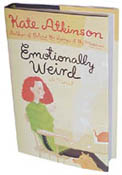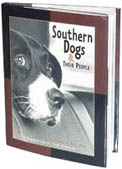|
Published for the first time in English, Vertigo is a testament to W.G. Sebald's place in contemporary fiction. Sebald uses a unique style that reads like the most eloquent of personal journals, and when he deposits us at the end of the trip, we are not exactly sure of what it all means but satisfied nonetheless. Written in four parts, the book isn't long but incredibly dense. The narrator is never named, and only through his travels and explorations through history do we get to know him. The novel follows his progress from Vienna to Venice while he compiles notes for a work that we are led to believe is the novel that we hold in our hands. Through his autobiographic prose the narrator weaves in information about Stendhal and his part in Napoleon's invasion of Italy; Casanova and his time spent in a Venetian prison; Kafka and his own disturbed ramblings through Vienna and several towns in Italy; and finally in the fourth part, the narrator takes us back to his memory of growing up in a small Bavarian town. Throughout the book, we read on, not quite certain of the connections that link the four parts. However, there is an underlying feeling that some truth must be gleaned from the pages, with multiple reads if necessary, and before reaching the end, by paying close attention, we see that the novel was never meant to be a linear story heavy with plot, but a story driven by setting, full of the richness of history and one man's search for what these European cities have to offer besides what is on the surface. -Steven Tweddell

EMOTIONALLY WEIRD "My mother is a virgin." The first line of Kate Atkinson's third novel, Emotionally Weird, is an undeniable attention getter. It's a lot to live up to, and sometimes the novel succeeds, sometimes not. Emotionally Weird pales in comparison to Atkinson's Behind the Scenes at the Museum, though the humor of the first book is present here. Nora and Effie Andrews are a mother and daughter with an unorthodox relationship. The bulk of the novel includes readers in the everyday, though by no means ordinary, college life of Effie while saving the mysterious and surprising story of Nora's life for the final pages. This is worth the wait however when readers learn the truth about the Andrews' sordid family history and why Nora chooses to live on a deserted island off the coast of Scotland, attempting to morph into the surrounding nature. Atkinson's language is beautiful, filling ordinary things with sparkling new description. She is also a brilliant painter of characters. Readers can easily envision the bumbling cast of college professors; Effie's hippie-liberal group of friends; Ferdinand, her object of lust; and Chick, the not-so-stealthy private detective. Despite the novel's slow pace, readers will stick with Effie, to hear Nora's long awaited tale, to find out if she ever really finishes her George Eliot essay or simply to catch her live-in, Bob, in yet another hysterical episode,"...he was now sleepmumbling something about herring, 'They've got knives!'"-Christina Dwiggins
Dogs enjoyed a popular place in the southern literary tradition long before characters walked canine ghosts at the end of empty leashes in the ridiculously overrated Midnight in the Garden of Good and Evil. Clyde Edgerton writes in his introduction to Southern Dogs and Their People, "I did not grow up in a culture of dog shows. I grew up in a culture of Dog. There is a difference." And that's what this book (a compilation of mini-essays and photos) is about. All the usual suspects have been rounded up: Larry Brown, Harry Crews, Madison Smartt Bell, Willie Morris, Eudora Welty, Peter Taylor, Reynolds Price, Tony Earley, Bobbie Ann Mason. Mary Hood contributes, "'Dog is my copilot,' Ben said, glancing at the rearview. Cliffie disapproved of dogs and blasphemy." P.S. Davis includes some amusing shots (notably a small terrier perched behind a sign that reads: "Please do not pet Miss Maggie - She will bite! Thank you.) which more or less illustrate the selected quotations, but a far better idea would've been to unearth photographs of the represented authors and their dogs. Algonquin occasionally puts out little books like this one (the one about love, loss, and what I wore comes to mind) that probably won't make any bestseller lists, or win any awards, but they're an entertaining read for a certain audience - in this case, southerners with dogs. Hell, it's worth $14.95 just to run across Flannery O'Connor's observation, "I always thought that if she had a dog she'd name him Spot - without irony. If I had a dog, I'd name him Spot, with irony. But for all practical purposes, nobody would know the difference." -RR
|
 VERTIGO
VERTIGO  SOUTHERN DOGS AND THEIR PEOPLE
SOUTHERN DOGS AND THEIR PEOPLE